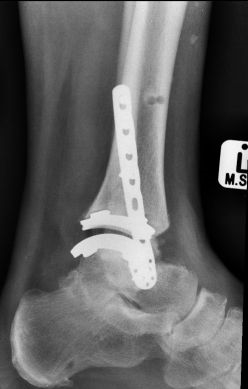Should Public Service Commissions Set Hospital Prices
By: Roger KoopmanPosted on February 23, 2017 FREE Insights
Forward by John Baden
I am pleased to post Montana Public Service Commissioner Roger Koopman's excellent column as a FREE Insight. He discusses the proposal to have PSCs assigned responsibility for controlling hospital costs (Montana House Bill 395). The proposal to do this might be well intended but it surely is a remarkably naive and costly proposal. Mr. Koopman observes it is "... a classic example of how lawmakers become lawbreakers when they cannot separate good intentions from bad economics."
The author of House Bill 395 failed to ask the key question of policy analysis: "And then what? Given the actions required and incentives created, what are the logical consequences that would follow the proposed change?" Using economic logic, Commissioner Koopman unpacks these questions and dismisses the proposal.
For personal reasons I have a heightened interest in hospitals, the evolution of medical technology, and the cost of medical care. Why? On January 23 I had a total ankle replacement (TAR) at the University of Utah Hospital.
This was a very complex five-hour operation. Dr. Charles Saltzman, Chm. of the Orthopedics Department at the U of U, was the chief surgeon. Dr. Robert Flaherty, a good friend and professor in MSU's WWAMI Medical Program, conducted the research to find the best American team to replace parts and repair my injured ankle.
Dr. Saltzman was one of the developers of the Zimmer® Trabecular Metal™ Total Ankle Replacement (TAR) system. This system replaces the articulating surfaces of the injured ankle with metallic and synthetic materials. I am optimistic it will work well and I will be able to hike, work on our ranch, bike, row and ski groomers.
While over one million Americans receive a hip or knee replacement each year, only 6,000 receive total ankles. Why? This is an extremely complex and costly operation and until recently the success rate has been low. Investigators reported 78% overall survival at 5 years and 62% survivorship after 10 years. (Orthopedics Today, Jan., 2013) Dr. Saltzman's success rate is over 95%.
If the goal is to improve health care, we should foster competing, evolving procedures to deal with medical problems. Progress with TARs is an excellent example of success. The imposition of regulations by any PUC type agency is certain to inhibit this process. Let's consider Commissioner Koopman's argument.

Should Public Service Commissions Set Hospital Prices?
“If there was a civil penalty connected with violating the laws of economics, most legislators on both sides of the aisle would be facing life sentences.” House Bill 395, which would commandeer the powers of the Public Service Commission to clamp price controls on Montanan’s hospitals, is a classic example of how lawmakers become lawbreakers when they cannot separate good intentions from bad economics.
The alarming cost of healthcare across our state and nation is a constant and vexing concern. As medical costs rise, so do the premiums we pay for our health insurance.
HB 395 is grounded in the belief that if prices are too high, all it takes is for the government to impose arbitrary limits and all prices will become affordable. This is "The Magic Wand School of Economics".... Yet if all it took was a government decree to give us the prices we’re happy with, why not have specialized government bureaus setting all prices across our economy? Logically and instinctively, we know that makes no sense.
.... (T)he prospect of transforming the PSC into a two-headed bureaucracy with two distinctly different missions is mind-boggling. The PSC is tasked with the incredibly important job of regulating public utilities. That job must never be compromised, divided or diminished. Yet how could a bifurcated commission – elected for its knowledge and competence in utility regulation – somehow become experts in healthcare as well? ....
But the single overriding reason for rejecting (PUC regulation of hospitals) is that it poses a political “solution” (without considering) the long-term consequences. It is a classic example of regulation that is trying to fix a problem without first identifying the cause.
The problem is not price. The problem is the causes of price. If you don’t get at the causes, you’ll never get at the solutions. That’s why economists will tell us that price controls never work. Free economies do not function in a top-down, government command fashion. They are markets, driven by consumers. Pricing plays a vital role in a free economy, signaling when to produce more, when to produce less, when to innovate, etc. You can’t put a blanket of price controls over an industry and think you’ve created a solution. You’ve only created a worse problem.
In the long run, price controls always create scarcity....Scarcity, rationing and subsidy are the last things we want for healthcare in Montana! We need to encourage, not discourage the development and expansion of quality, cost-effective healthcare services...that will provide more market choice, greater price transparency, and real consumer empowerment. HB 395 would do the exact opposite of this, and would likely render Montana the most hostile and unfriendly place for health providers in the nation.
.... When it come to passing legislation, you simply cannot violate the laws of economics without paying the price. Sincerity and good intentions are not enough.
Roger Koopman is serving his second term on the Public Service Commission.

